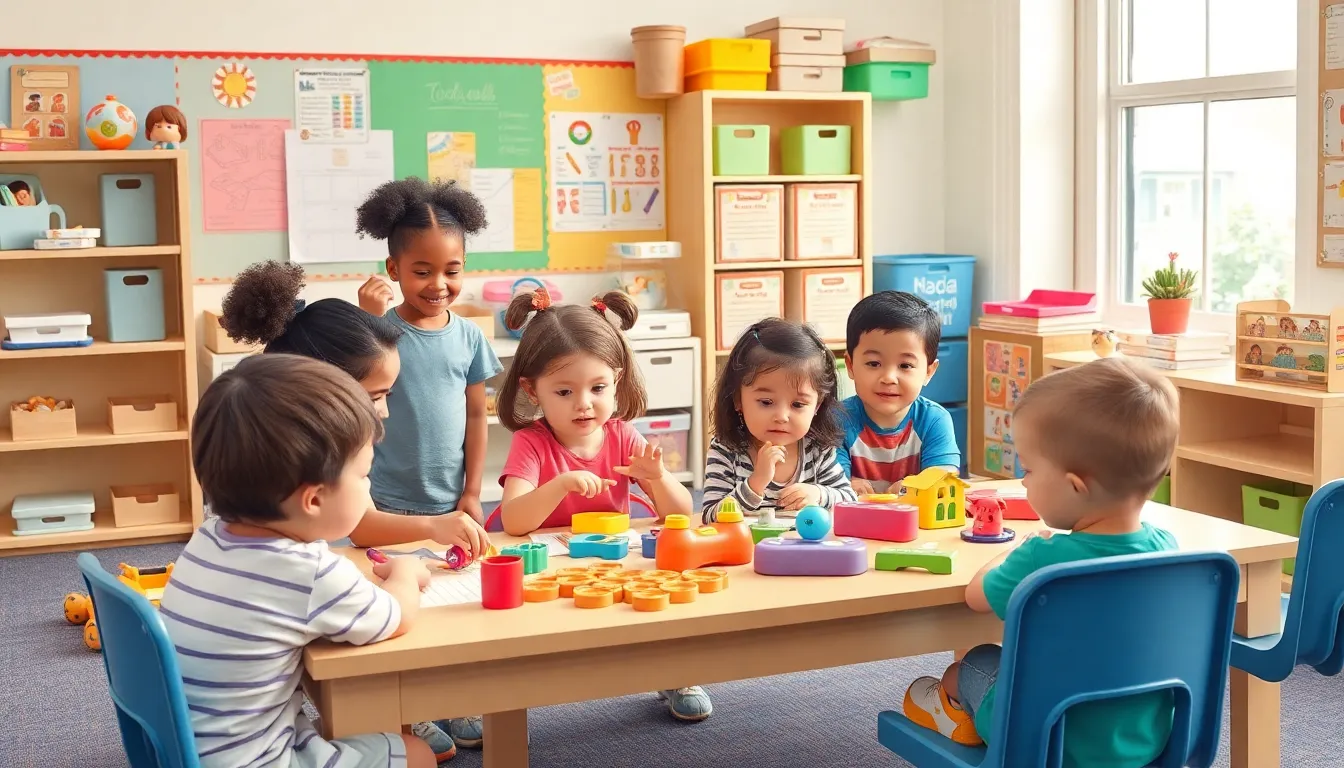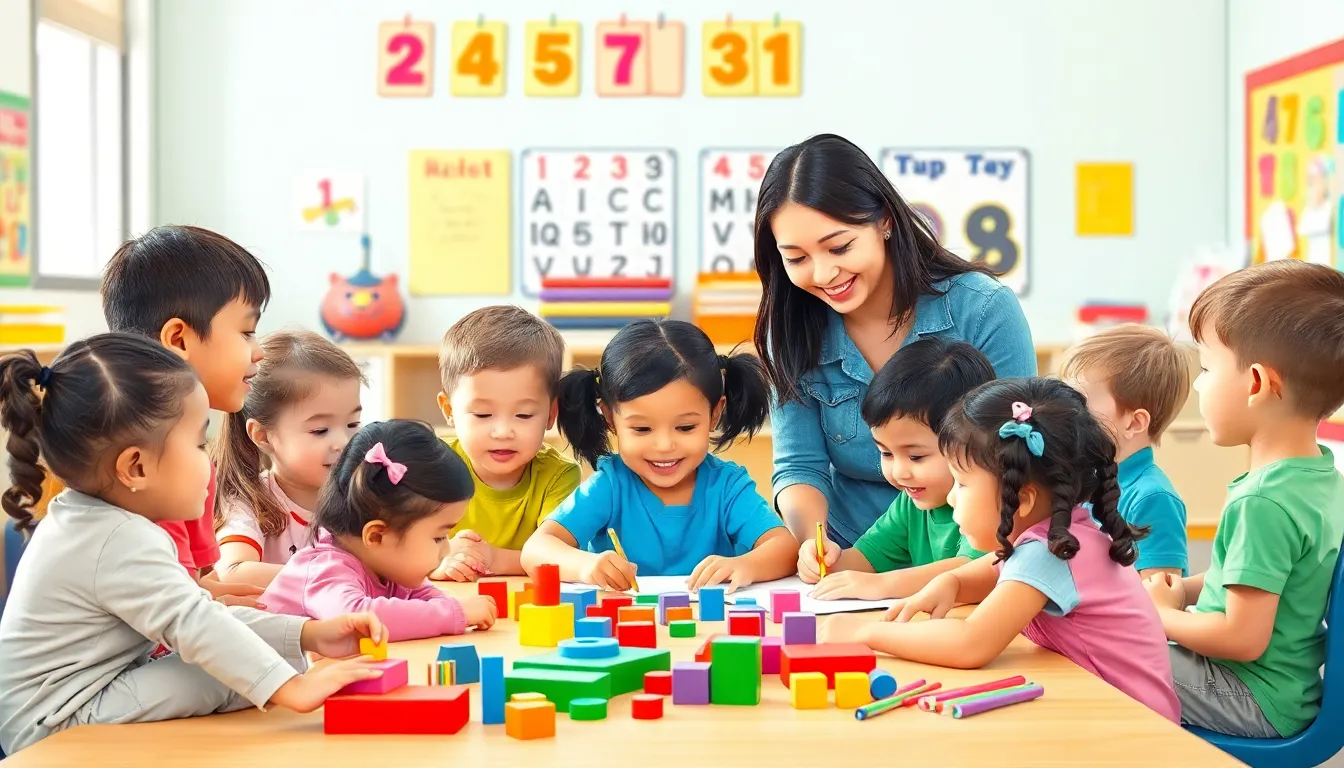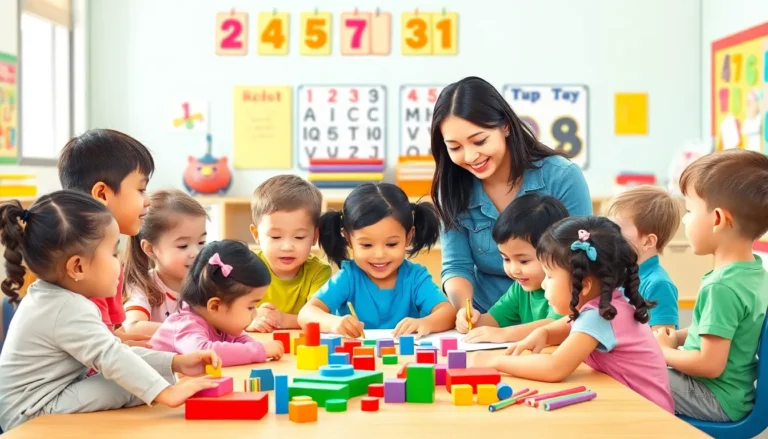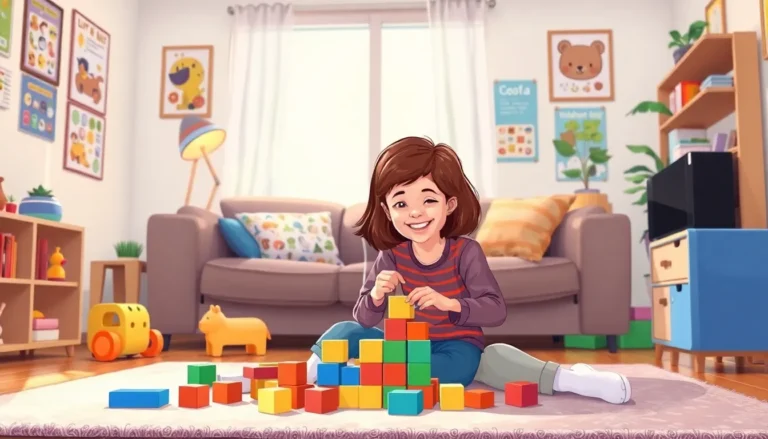Table of Contents
ToggleIn the world of early childhood education, South Carolina’s early learning standards are like a treasure map—guiding educators and parents alike toward the goldmine of child development. These standards aren’t just a set of rules; they’re the secret sauce that ensures kids are ready to take on the world, one finger painting at a time.
Understanding SC Early Learning Standards
South Carolina’s early learning standards serve as a crucial framework for children’s developmental progress. They provide guidelines to educators and parents for fostering a supportive learning environment.
Definition of Early Learning Standards
Early learning standards define what children should know and be able to do at specific ages. These benchmarks cover various domains, including cognitive, social-emotional, physical, and language development. Defined standards help ensure consistency in early childhood education programs across South Carolina, enabling educators to create age-appropriate learning experiences.
Importance of Early Learning Standards in SC
Early learning standards play a vital role in child development within South Carolina. They establish clear expectations for children’s progress, guiding educators in implementing effective teaching strategies. Standards also facilitate communication among educators, parents, and stakeholders about developmental milestones. Additionally, adherence to these standards leads to improved school readiness and better outcomes for children’s future learning experiences.
Goals of SC Early Learning Standards

South Carolina’s early learning standards aim to cultivate a strong foundation for children’s growth and education. These goals specifically address various developmental and educational areas.
Developmental Goals
Developmental goals focus on key areas of growth, including cognitive, social-emotional, physical, and language development. These standards guide educators in identifying milestones children should achieve at specific ages. Understanding each child’s unique progress in these domains allows for tailored support. Establishing clear expectations helps educators monitor children’s readiness for future educational challenges. Additionally, the emphasis on social-emotional growth promotes healthy relationships and self-regulation skills among children.
Educational Goals
Educational goals emphasize preparing children for academic success through structured learning experiences. Standards outline essential knowledge and skills children should acquire before entering school. These benchmarks assist educators in utilizing effective teaching strategies tailored to diverse learning styles. Strengthening collaboration between educators and parents becomes crucial for addressing individual developmental needs. Ultimately, these educational goals enhance children’s overall school readiness, leading to positive long-term outcomes in their academic journeys.
Implementation of SC Early Learning Standards
Implementing South Carolina’s early learning standards requires strategic approaches. These standards play a vital role in guiding educators and families.
Role of Educators
Educators act as facilitators in the implementation of these standards. They align their teaching practices with established benchmarks for cognitive, social-emotional, physical, and language development. Assessment tools help identify each child’s unique progress, allowing for tailored support. Classroom activities reflect the standards, ensuring children engage in meaningful learning experiences. Continuous professional development enhances educators’ skills, enabling them to apply effective teaching strategies. Collaborating with colleagues fosters a supportive community that prioritizes children’s developmental needs.
Importance of Family Involvement
Family involvement significantly enhances the effectiveness of early learning standards. Parents and guardians play a crucial role in reinforcing learning at home. Communication between families and educators strengthens partnerships that focus on a child’s growth. Engaging families in school activities cultivates a supportive environment for children. Workshops help parents understand the standards and how to support their child’s development. When families actively participate, they contribute to improved outcomes for their children, leading to greater school readiness.
Assessment of SC Early Learning Standards
Assessment of South Carolina’s early learning standards involves various techniques to gauge children’s development effectively. These methods provide insights into each child’s progress, ensuring that educators can meet individual needs.
Methods of Assessment
Multiple assessment tools exist to evaluate children’s developmental milestones. Observations offer real-time insights into children’s behaviors and skills. Standardized assessments measure specific knowledge and abilities across key domains. Portfolio assessments compile samples of children’s work, showcasing growth over time. Informal assessments, such as checklists or anecdotal notes, allow educators to track progress effortlessly. By utilizing a combination of these methods, educators can create a comprehensive understanding of each child’s unique development.
Continuous Improvement Strategies
Continuous improvement strategies focus on enhancing the implementation of early learning standards. Regularly reviewing assessment data helps identify areas needing attention. Collaborative professional development ensures educators remain informed on best practices. Incorporating feedback from families strengthens the support network surrounding each child. Adjusting classroom activities based on assessment insights tailors learning experiences to individual needs. Engaging educators in ongoing training promotes a culture of growth and adaptability that aligns with children’s evolving developmental goals.
South Carolina’s early learning standards are pivotal in shaping children’s educational journeys. They provide a structured framework that not only supports developmental milestones but also enhances the collaboration between educators and families. By focusing on key areas like cognitive and social-emotional growth, these standards ensure that children are well-prepared for future academic challenges.
The commitment to continuous assessment and improvement further strengthens the effectiveness of these standards. With the right tools and community involvement, educators can tailor learning experiences to meet each child’s unique needs. Ultimately, South Carolina’s early learning standards lay the groundwork for a brighter future in education, fostering a culture of growth and readiness that benefits every child.





